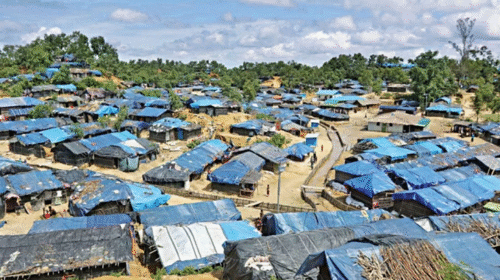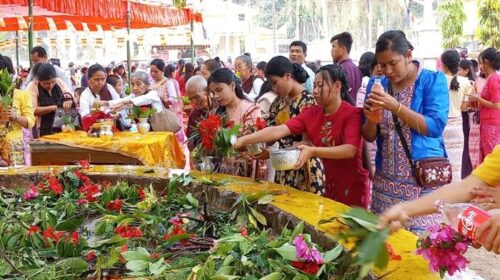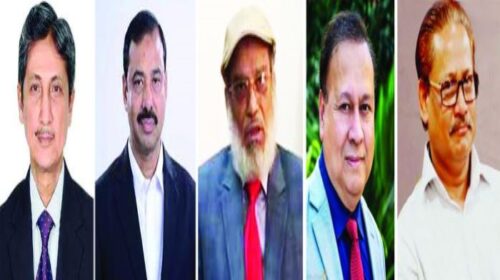Sylhet Correspondent: Expatriate Welfare and Foreign Employment Minister Imran Ahmad MP has sent a recommendation to open the closed stone quarries in Sylhet. Today, Wednesday (October 26), the Ministry of Energy and Mineral Resources has updated the list of gazetted stone quarries and updated the list of stone quarries. Minister of Expatriate Welfare and Foreign Employment Ministry Imran Ahmad MP gave the DO along with the senior secretary.
Although Sylhet’s stone quarries have been protesting for a long time, the position of the local MP and Expatriate Welfare Minister was not clear. Finally, the expatriate welfare minister wrote in detail in his semi-official letter and stated his position. After hearing the news of the minister’s recommendation, the people related to Sylhet’s stone quarry are congratulating through social media. Already the DO issued to the ministry has gone viral on social media.
The DOT written by Minister Imran Ahmed is presented to the readers precisely:-
The minister mentioned in his semi-official letter, since most of the stone quarries in my constituency are located in Jaflong Bichnakandi, Bholaganj. The employment and livelihood of the people of these areas are inextricably linked with the stone quarry, so I put forward some of my well-thought-out views for the committee’s consideration. 1. Stone extraction from the quarries has continued for a long time, but it has been stopped for the past few years under government directives. Since the quarries have been active for a long time, most of the people in the area were involved in quarry related work. Due to closure of quarries, thousands of workers lost their jobs and became unemployed. Quarries have served as the sole source of employment for all the workers as no industrial plant has been set up in my constituency.
2. As the quarries are located in the foothills of the Meghalaya mountains in India, large quantities of rock are brought along with the water coming down from upstream during the annual hill run. Due to the fact that the quarry was closed for several years and the stones were not extracted, many stones are currently piled up at the mouth of the river. Due to this, the normal flow of water is blocked and the course of the river is changing. As a result, Khasiapunji next to Jaflong Quarry, Bagaiya next to Bichnakandi Quarry and Bichnakandi Mouja, one Bholaganj Quarry Kalairag and Kalasadak Meeza along the banks of the river have been destroyed and they are disappearing into Elaksmuh River.
3. As stone quarries have been closed for a long time and unemployment has increased, unrest, helplessness and despair have increased among the people of the area and they have been involved in various immoral and anti-social activities, resulting in the overall deterioration of the law and order situation. The Expatriate Welfare Minister expressed his opinion at the end and said, “I think that digging the Piane River from the source of Jaflong Quarry will increase the flow of river water along with increasing the navigability of the river. And the water from the sudden mountain runoff will drain quickly. As a result, thousands of crops of this land will be saved from flood water. It should be noted here that a part of this quarry is included in the Environmentally Critical Area (ECA). Bholaganj Quarry If stones are removed from the source in a controlled manner, the flow of water will be correct and employment opportunities will be created for its workers. The same applies to Bichnakandi Quarry.
The minister also mentioned that tourism centers have been developed in Sylhet based on quarries. But we have to remember that in addition to protecting the beauty of the tourist center, the resources of the locals are also deprived for humanitarian reasons. As the quarries have been closed for a long time, the locals have lost their jobs and are getting involved in various types of crimes, so the law and order needs to be properly maintained. Necessary steps should be taken to involve local workers in quarry management.
Where possible parts of the quarries may be reserved for special tourists. The Minister mentioned that in the light of the above-mentioned issues, the issue of opening the entrances of stone quarries in a limited manner and giving permission for other stone quarrying may be considered.



















